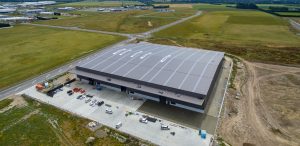A big part of our role as Resource Consent Planners and Transport Engineers, is to be on the lookout for savings for our Clients – no matter what stage of the project process we are engaged in. One area of cost saving that is becoming more prevalent for our clients is the reassessment of Council development contributions.
 A development contribution is a fee payable to the Council as a contribution towards the funding of infrastructure required to service growth development, including pipes, roads, parks and community facilities. By way of justification, charging development contributions enables the Council to recover a share of the cost of the capital investment needed to service growth development from those who cause and/or benefit from that investment.
A development contribution is a fee payable to the Council as a contribution towards the funding of infrastructure required to service growth development, including pipes, roads, parks and community facilities. By way of justification, charging development contributions enables the Council to recover a share of the cost of the capital investment needed to service growth development from those who cause and/or benefit from that investment.
Whether the development is residential or non-residential, at the stage of granting a resource consent, subdivision consent, building consent or authorisation or a service connection are all events that will trigger a development contributions assessment to be undertaken by the Council.
The calculation of development contributions often relies on assumed or generic rates of demand for an activity. For large scale developments of those with unusual or atypical demands on infrastructure, development contribution assessments can incorrectly assume higher demands on network infrastructure and overcharge development contributions.
For example, a large industrial building with limited staff and visitor activity and low transport, water and wastewater demands could be assessed for excessive contributions on the basis of its floor area. 
Recently, we were asked by a client to review and seek reassessment of the development contributions on their industrial site in exactly those circumstances. We reviewed the traffic related demands on the road network, active travel and public transport and the likely wastewater usage was based on occupant densities and the characteristics of the activity. We then sought a reassessment of development contributions based on realistic infrastructure demands. Overall, we achieved a reduction of almost 70% in development contributions (over $230,000!), which was a fantastic (and fair) result for the client, achieved through targeted advice and assistance from the Novo Group team.
We will continue to look into and assist with reassessments of Development contributions. Contact us via info@novogroup.co.nz if you would like further information.




